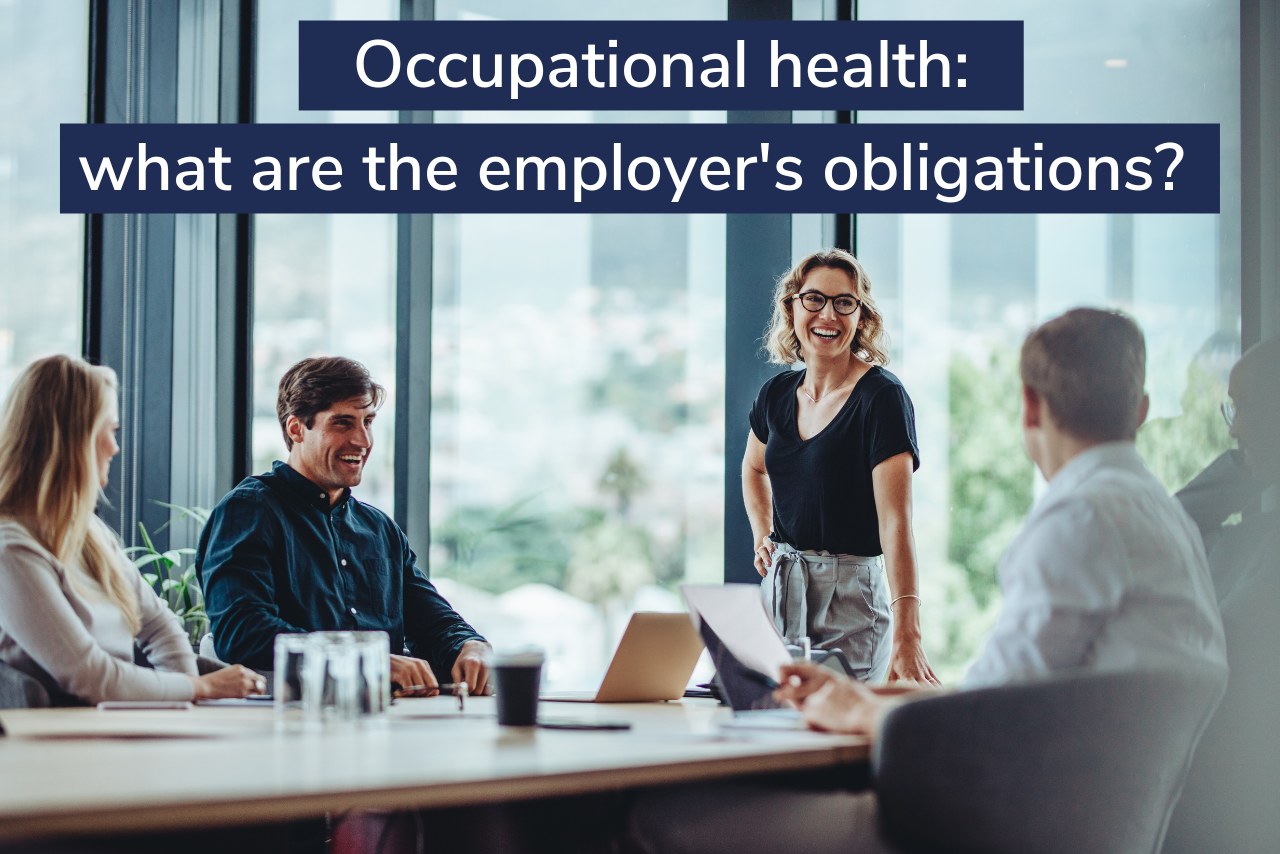Occupational health: what are the employer’s obligations?

The issue of occupational health is not just theoretical. It is accompanied by real obligations incumbent on the employer and non-compliance with which can be sanctioned at the civil, administrative and also criminal level. However, more than the fear of possible sanctions, it is the consideration of the benefits that an ambitious health policy can bring for the company that must motivate the employer and the human resources department to put in place concrete measures. in occupational health.
Currently, we are witnessing a broadening of the scope of employer obligations. Long confined to the prevention of occupational risks, occupational health is increasingly opening up to health in general. Thus, the law n° 2021-1018 of August 2, 2021 to strengthen occupational health prevention which transposes the ANI (national interprofessional agreement) of December 10, 2020 works to build bridges between the company and city medicine, in particular through occupational doctors.
Occupational risks at the heart of the employer’s obligations
The assessment and prevention of occupational risks remain a major element of the obligations incumbent on the employer in terms of health and safety at work. These are also obligations of result which may engage its criminal, civil and administrative liability.
Thus, the employer must take measures to ensure the safety of its employees and protect their mental and physical health. Concretely, this means that he must:
- carry out a risk assessment in the company,
- record the results of this assessment in the DUERP (Single Occupational Risk Assessment Document),
- put in place actions to prevent occupational risks such as prohibiting the use of a particular product or tool without suitable equipment, adapting certain workstations faced with arduous factors, etc.,
- inform and train employees, particularly when they join the company, change jobs or resume after a work stoppage. This obligation also applies to temporary workers,
- adapt the organization of the company to external conditions (heat wave or snowfall for example),
- provide protective equipment and enforce its wearing.
Although the prevention of occupational risks continues to represent a major aspect of occupational health, awareness of the more general risks of developing a chronic and/or serious illness is increasingly taken into account by companies. A work stoppage, whether caused by an accident at work, an occupational disease or a pathology outside the world of work, has consequences on the structural organization of the company, on its productivity, etc. All this has a significant cost in the long term.
The growing place of health prevention in corporate HR policies
The financial, structural and organizational consequences of work stoppages push companies to integrate employee health at the heart of their HR policy. These measures also tend to strengthen the employer brand and thus the attractiveness of the company. Health prevention is a real social and economical for employers. It is even tending to become an important aspect of their occupational health obligations. Indeed, the aforementioned law of August 2, 2021 expands the missions of prevention and occupational health services to include awareness-raising and screening actions for employees. It also urges employers to implement risk prevention initiatives and support their employees with concrete solutions.
In concrete terms, Predilife can help companies and occupational medicine services to set up these awareness-raising and screening actions. Our multi-pathology predictive assessments make it possible to raise employees’ awareness of the risks they run and to offer them, in complete confidentiality, personalized support. Their implementation can be accompanied by internal communication measures adapted to the expectations of employees in order to answer their questions and increase their awareness. Do not hesitate to contact us to find out more about our offers.